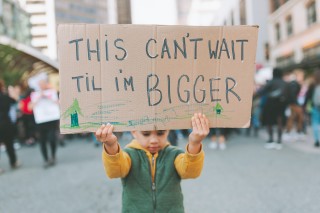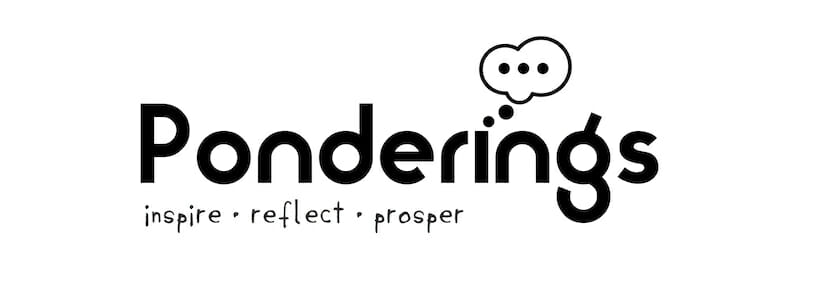Democracy is a beautiful instrument; however, it can be plucked in ways producing music not kind to our ears, or a little bent.
Upholding democracy means tuning and care. In the theatre of life; if the play isn’t going the way we like it, we have ways we can express this, and it isn’t about throwing rotten tomatoes.
Enter the protestor!
Many associate protestors with “lefties” or a mob mentality.
Okay so maybe you’re not a fan of crowds. I get it. I’ve got personal space issues at the best of times and a compromised immune system. So during a pandemic, the health experts aren’t the only ones concerned. Aside from the current virus outbreak; large groups aren’t everyone’s cup of tea, but if we examine the importance of protest closely, we may just reclaim the joy and freedom of positive impact.


Who could blame us in this big fast progressing world for being overwhelmed?
The actors are getting cunning; the characters are intense and layered. It could be said people have grown disenfranchised; they no longer feel in control of the world around them, the bigger picture is out of their hands, and they have as much impact as a water bottle in a blizzard. Men in suits in closeted rooms might be doing deals; we can’t change anything. Or can we?
Peaceful protest is a way of demonstrating your concerns and a larger cry for change; a Please and Thankyou or Come On We Have Had Enough. Some may even say it is a means of civil duty.
Mahatma Gandhi took a walk one day; it lasted another 22 with a 240-mile stroll to the coast of India to collect salt, which was illegal under crown laws. He collected tens of thousands of people along the way. His quest for satyagraha (asserting for truth) and ahimsa (non-violence) was indeed compelling.
The governing body was forced to admit Gandhi into a legislative council, he was recognised as a force to be reckoned with, and India eventually gained her independence. Even though the protest was peaceful, many died, and Gandhi himself was jailed and ultimately assassinated.
Needless to say, his legacy lives on, and the non-violent peacekeeper anchored in our human history.
Martin Luther’s demand in the 1500s for the everyday person to have access to the Bible, limiting the financial indulgences of the catholic church and announcing salvation could be achieved through faith alone was the beginning of the Protestant movement.
Martin sought to place the Bible into the hands of ordinary Christians. He translated it from the language of scholars and clergy; Latin-into the vernacular. This lead to the reformation. To protest. Again, the world altered monumentally.
Do you object? That’s okay; it is your democratic right.
You can object and argue all day long, about anything you like. I am not trying to get into a religious debate, but rather I am using this to illustrate times in history where protesting changed something. Good one Captain Obvious, but there will be those who comment without understanding the intent.
Debating might not win you friends or help you influence people, but hey, everyone has an opinion. Shall we ponder some more?


Many protests have turned to horror.
Anarchy, chaos, looting, murder, rape and complete mayhem can ensue when passive resistance turns to aggressive agitation—Dante’s inferno springs to mind.
We can adhere to principles, or we risk protests becoming the vehicle for suppressed rage. When people get intensely passionate, physicality is never far away. A power battle ensues and people can get very hurt. This highly charged atmosphere can turn us against each other and make enemies of those on either side of the barricade.
In Australia we have a template, a best practice medium if you like for protest, you can access it here. We are very capable of growing our choices like seeds that turn into a beautiful new species of trees, ones that have been calling us for so very long. Evolving can be a choice.
The set of principles as set out by the Human Rights Law Centre are a brilliant resource for knowing and understanding your rights as a citizen to demonstrate your expression.
“These principles are rooted in Australia’s Constitution, international law, common law, and general democratic principles. They also draw on international and domestic best practice. They provide a blueprint for a democracy in which the freedoms of expression and assembly are respected and protected.”
A protest is often the way our politicians can gauge the temperature of the community.
If there is enough uproar, enough disheartened “loudness” it can get hot in the kitchen. Sometimes the soft leaders will call for expensive referendums or voting booths to make sure they are being forced into the act, then when it swings the other way they can’t do much; because the “people have spoken.”
As frustrating as this stance can be, we are reminded they too are vehicles for democracy to journey on.
So perhaps a big enough peaceful assembly signals to our leaders their people want the opportunity to make a different choice or to change something.
We are seeing more and more laws getting passed like notes in class, seeking to turn a peaceful protest into civil disobedience and chargeable offences.
What drives this? There will be plenty of guesses, often the bell of truth tolls when money is afoot; commercial interests tend to yank the rope. Caution is needed here, and we must pay attention.
Our civil liberties and the right to protest are precious and necessary. It is our means of expression and upholding democracy. Lawmakers and governments should take positive steps to promote freedoms of expression and assembly. Let’s not allow the lawmakers to bend the rules and clip our wings. Freedom is a bird who must never have her wings clipped, even if she is told the removal of feathers will keep her safe.
Am I an idealist? Absolutely. Always.
Some great articles to read:
The Principles of Protest in Australia by the Human Rights Law Centre

Written by Kirsten Macdonald
Related Articles
Related
The Dynamic Scarce Sisters Serving Up Canine Health with a Side of Humour
We ponder with Alana and Michele Scarce, sisters who infuse every endeavour with their infectious energy, spirited leadership, and humour. The founders of Raw Pawz spill the tea!
Warren Davies; An Unbreakable Journey Beyond the Back Paddock
We ponder with Warren Davies, known as ‘The Unbreakable Farmer’, an icon of rural mental health in Australia.
Love’s Alchemy: Transforming Rustic Barn into Dream Weavers’ Atelier
In the enchanting realm of Wallington, there exists a story of love that transcends mere emotion. It’s a tale woven into the fabric of an abode that’s more than a venue – The Barn Wallington.

Follow Us
Join
Subscribe For Updates & Offers
Support our mission to write and produce Positive Stortelling, it takes a tribe to build one.






